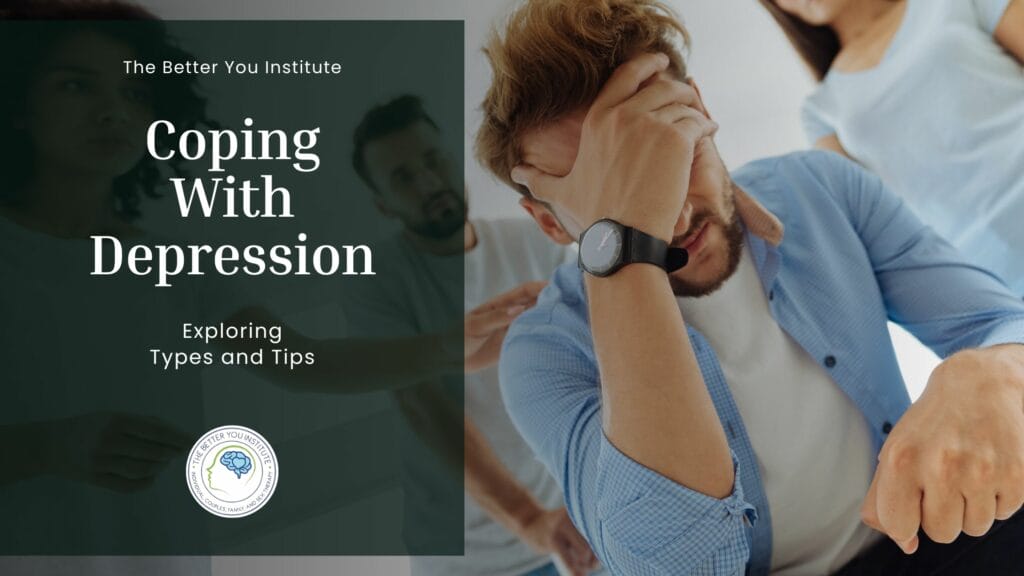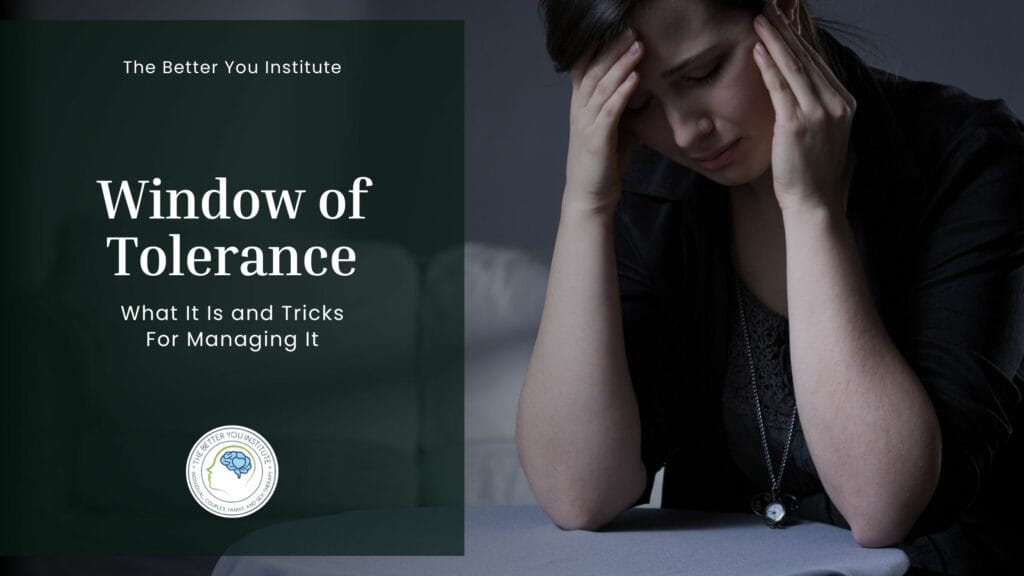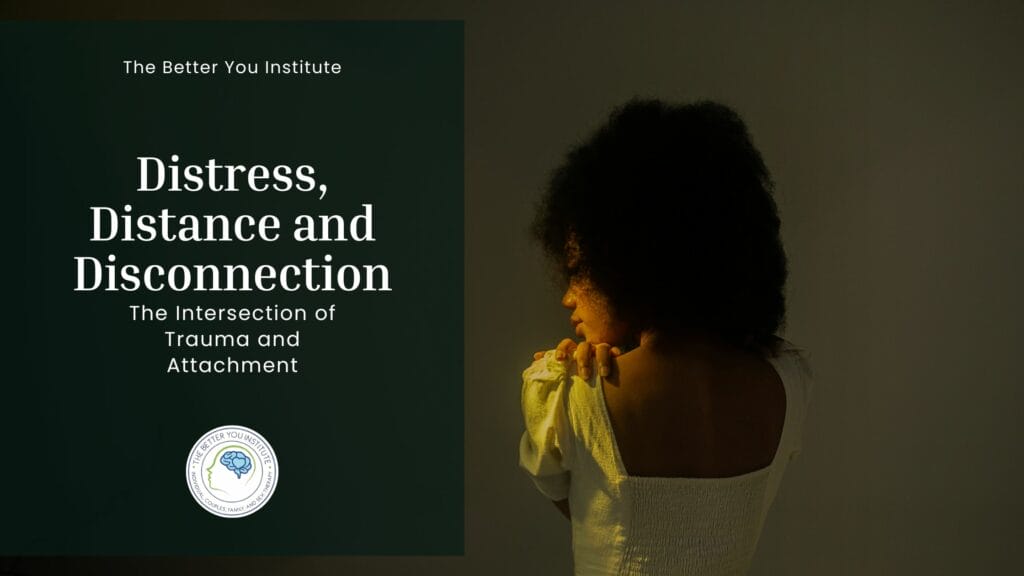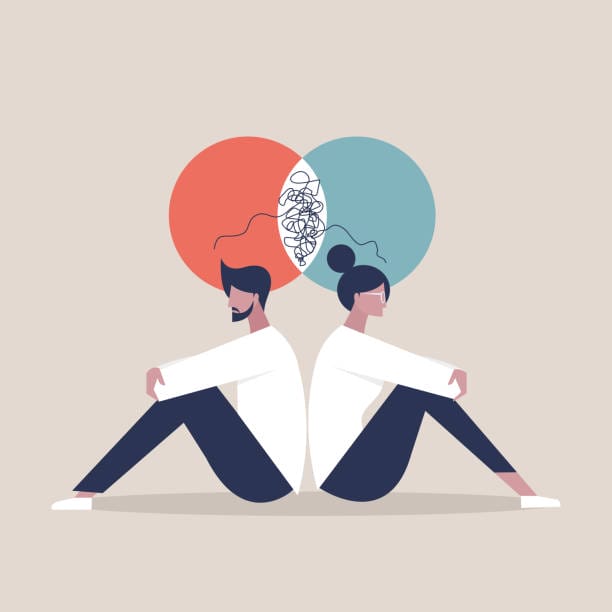Depression is a mental health condition that is prevalent on a global scale. According to the World Health Organization (WHO), it is stated that 264 million people across the world have some version of depression. Additionally, it is indicated by the WHO that depression is considered to be a disability, and due to the millions of people affected by it, a leading cause of disability throughout the world. While depression is more common in women, it should still be noted that depressive symptoms can develop for anyone regardless of gender identity. While mental health issues and their presentations can vary from person to person, some commonplace symptoms of depression have been noted. Some symptoms can include low mood, no longer feeling interested or enjoyment in activities, reduced/increased time sleeping, and notably less energy.
Additionally, people fighting depression can experience loss of appetite, low feelings of self-worth or guilt, or difficulty concentrating. Depression can be a co-occurring condition, with some people also having symptoms of anxiety. While depression can impact people with all sorts of lived experiences, there have been correlations found. According to the WHO, people who have experienced adverse events are more at risk for developing depression. Examples of adverse events could be experiences that are psychologically/physically/emotionally traumatic, experiencing unemployment, being raised in a one-parent home, divorce, low socioeconomic status, oppression, chronic illness, intellectual disabilities, or loss of a loved one leading to bereavement. There are treatments that people can participate in to manage depression symptoms. Cognitive-behavioral therapy (CBT) looks at people’s thought patterns in their everyday lives, which can be impacted by depression, such as a person seeing their world through a more negative lens. These negative lenses can lead people to see their world with a degree of negativity that might not be necessarily accurate, and lead to major depressive disorder. When a person experiences depressive symptoms in their life, it can impact their relationships and those who care about them. Interpersonal psychotherapy (IP) looks at how depressive symptoms can impact a person’s social functioning. Speaking to the importance of socializing, Interpersonal psychotherapy can also be done in a group therapy setting.
Table of Contents
Different types of therapy for treating depressive symptoms
- Cognitive-behavioral therapy (CBT)- This theoretical model emphasizes the thought patterns of a client and how said thoughts impact their subsequent behaviors. For some people, depressive symptoms can include having thought patterns that can cause people to see themselves, other people, and the world around them through a lens that is negative in its interpretation of events. A therapist using CBT would work with a client to target what thought and behavioral patterns they’d like to change. The goal would be to replace negative or maladaptive thought-behavioral patterns with more positive and/or adaptive patterns. These adaptive thought-behavioral patterns would work towards reducing depressive symptoms.
- Interpersonal psychotherapy (IPT) has been proven to be another effective model of psychotherapy for treating depression. Originally utilized to treat adults with depression it is also found to be effective in treating adolescents, as well as children. This therapeutic model highlights how depression can be related to a person’s interpersonal relationships. To start off, IPT is used with the client to help them reduce their symptoms and also work to improve their adjustments in socializing. For long-term goals, IPT seeks to work on respective adjustment issues. The overall goal is to help the client to manage depression by adding in the client’s coping skills and create reductions in their depressive symptoms.
Additionally, medications categorized as antidepressants such as selective serotonin reuptake inhibitors (SSRIs) and tricyclic antidepressants (TCAs) have demonstrated effectiveness. There are also non-medical and non-clinical depression coping mechanisms that have been found to be effective. Your therapist will help you elaborate a customized treatment plan to cope with depression.
Manage depressive symptoms learning coping mechanisms for depression
- maintain a strong social support network
- maintain a healthy lifestyle
- lean on your social network to talk through low mood
- exercise has been found to increase a person’s mood, so an action as commonplace as going for a 30-minute walk could be beneficial, to an intensive workout at the gym, or playing a sport.
- challenge yourself mentally or physically
- follow a healthy diet, feed your body nutrient-dense food (focus on gut health)
- Making small changes to your diet can make huge differences in how you feel!
- Consumption of alcoholic beverages, for example, should be monitored if one is experiencing a bout of depression. While alcohol in small quantities can act as a stimulant that can improve mood, alcohol consumed in large quantities (i.e., binge drinking) acts as a depressant. When consumed in heavy quantities, alcohol can actually cause a person to feel more intense symptoms of depression.
- 90% of a person’s serotonin receptors are stored in their gut. Serotonin helps to regulate mood, appetite, sleep, and cognitive functions such as memory and learning.
- An example of this relationship is when a person is prescribed antidepressants, such as selective serotonin reuptake inhibitors (SSRI). The most common side effects of these medications are gut-related such as gastrointestinal issues, diarrhea, and nausea.
- Depression may cause you to crave sugary foods, which can wreak havoc on your gut biome while tricking your brain into thinking it’s serotonin. This can also play a role in your gaining weight, which may create self-esteem issues.
- Alternatively, some people with depression lose their appetite, therefore people who have this eating pattern are at risk of becoming underweight. This can cause unhealthy stress on your body, screw up your metabolism, and for females cause a loss in your menses.
- stay away from pre-packaged or processed foods. These types of foods are high in preservatives and food additives, which cause disruptions to healthy bacteria in a person’s gut.
- Eating enough fiber, probiotic-rich foods, and fermented foods are useful in maintaining a healthy gut. Additionally, eating less red meat and more lean poultry, and a balance of seafood is recommended on a weekly basis. Organic produce can also be helpful in having a healthier gut and ultimately improving one’s overall mood.
- People with depression can sometimes experience unhealthy sleep patterns. It can also be beneficial that a person who has depressive symptoms has a regular routine or daily schedule. An example of this would be to have a set bedtime. Giving yourself stability throughout your day can work against the sometimes debilitating effects of having depression.
- meditate and reduce negative thoughts
- see a therapist/attend support group therapy
- use medications/supplements
- journal
- keep a gratitude journal
- sit in your emotions to process them as they come up
- process past experiences that may be leading to the depressed mood
- channel forgiveness where it is needed (to others and yourself)
Seeking professional help for depressive symptoms
Unfortunately, depression can sometimes cause people to feel anxious or be in a low mood. This can cause people to avoid doing activities that they perceive as difficult or experience a lack of interest in things.
There are multiple ways in which people with can cope with their depression and symptoms. However, when in the throes of depression, it can be difficult to find the motivation for change. If you know you slide into depressive bouts, when you are feeling good, set yourself up for success for the times when you are feeling more depressed. Have a support system that can check in on you, find a therapist that you start working with and continue to do during your more depressed times, identify grounding techniques that you can use, or get yourself in a routine. If you have tried these techniques but still struggle to overcome depression when it sets in, you are not alone.
As mentioned, having a depression therapist to help you through these tough times can be super helpful! We are here to help. Please call to make an appointment at 267-495-4951.







